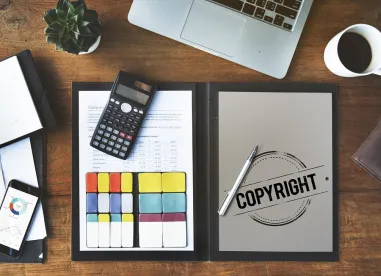On March 4, 2019, the U.S. Supreme Court issued two decisions influencing the bookends of a copyright lawsuit – what steps are necessary to take with the U.S. Copyright Office before filing a copyright claim in court, and the extent of “full costs” available to a prevailing party.
Registration of a Copyright Claim
In Fourth Estate Pub. Benefit Corp. v. Wall-Street.Com, LLC, Justice Ginsburg authored the opinion that resolved a long-standing circuit split, holding that in the context of 17 U.S.C. § 411(a), “registration occurs, and a copyright claimant may commence an infringement suit, when the copyright office registers a copyright.” Merely filing an application without waiting for action from the copyright office, which some circuits had held to be sufficient, is generally not enough to bring a copyright claim.
This ruling, however, does not make the copyright office the gatekeeper for determining who can file a copyright suit. Justice Ginsburg noted that if the office refuses to register the work, Section 411 of the statute provides a copyright owner can still file suit. The important event is for the copyright office to have acted on the application, either by issuing a registration or by refusing to do so.
There are two “explicit carveouts” to the general rule:
-
First, a copyright owner may file an infringement suit before receiving a registration if the work qualifies as “especially susceptible to prepublication infringement,” such as a movie or musical composition, and if the owner satisfies the preregistration requirements.
-
Second, a copyright claimant may bring suit without a registration if the work is a live broadcast as spelled out in Section 411(c).
-
In either case, the copyright owner will need to secure a copyright registration to maintain the suit.
Rest assured that even if an infringement begins before a copyright owner applies for registration, the successful copyright claimant can still obtain an injunction, and “may eventually recover damages for the past infringement, as well as the infringer’s profits,” the ruling states. Statutory damages – the powerful remedial tool in copyright law – may not be available, however, unless the copyright claimant filed its application within either three months after first publication of the work, or before the infringement began.
A key takeaway is the importance of timing. A copyright owner should consider filing for a federal copyright application as soon as possible and not wait until an infringement has occurred. Filing for such protection could allow the owner to retain the opportunity for statutory damages and potentially reduce the risk of incurring increased fees for expedited application processing.
Proper Costs to a Prevailing Party
On the other end of a copyright lawsuit is the question of proper costs awarded to a prevailing party. In Rimini Street, Inc. v. Oracle USA, Inc., Justice Kavanagh wrote for the court in reversing the U.S. Court of Appeals for the Ninth Circuit’s decision and held that the term “full costs” in 17 U.S.C. § 505 means only the six categories listed in 28 U.S.C. § 1920, namely, fees of the clerk and marshal; fees for printed or electronically recorded transcripts; fees and disbursements for printing and witnesses; fees for exemplification and cost of making copies; docket fees; compensation of court-appointed experts, interpreters, and salaries, fees, expenses, and costs of special interpretation services.
Absent explicit statutory authorization otherwise, the court ruled that the term “costs” encompasses only the aforementioned categories, and the word “full” is a “term of quantity or amount” meaning “complete; entire; not defective or partial.” “Full” does not include other non-specified costs such as expert witness fees, e-discovery expenses, or jury consultant fees.
Although the court’s ruling in Rimini Street reduces the losing party’s liability for costs, monetary awards – especially those in copyright cases – can still be millions of dollars. In this case, even though the Supreme Court ruled that $12.8 million of the overall costs should not have been awarded, Rimini Street was still liable for millions of dollars in damages for copyright infringement and violation of state laws, attorney fees, and costs.





 />i
/>i

